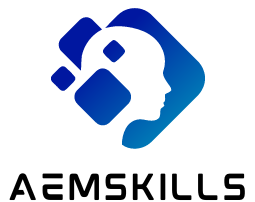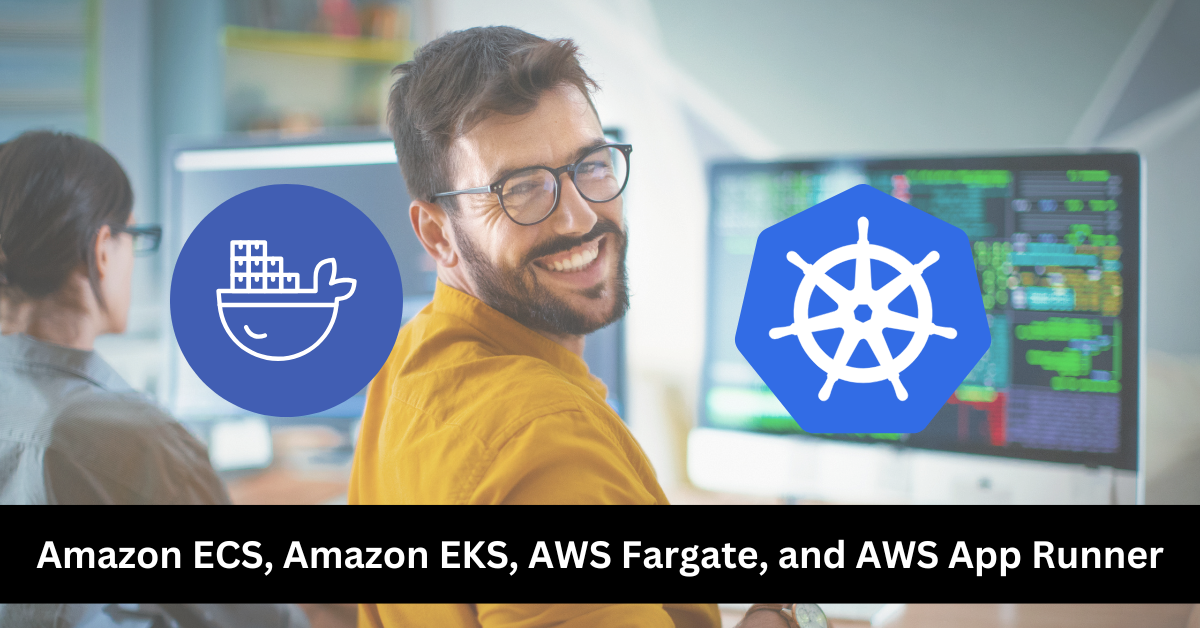A comparison between container options available in AWS, including Amazon ECS, Amazon EKS, AWS Fargate, and AWS App Runner
Amazon Web Services (AWS) offers a variety of container services to meet diverse application needs. Amazon Elastic Container Service (ECS) provides a scalable and high-performance container orchestration service. Amazon Elastic Kubernetes Service (EKS) offers a managed Kubernetes service for running Kubernetes applications. AWS Fargate is a serverless compute engine for containers, allowing you to run containers without managing servers. AWS App Runner simplifies the process of deploying and running containerized web applications and APIs. This comparison explores the features, benefits, and use cases of these AWS container options, helping you choose the best solution for your specific requirements.
Here is a comparison table of container options available in AWS, including Amazon ECS, Amazon EKS, AWS Fargate, and AWS App Runner:
| Feature/Aspect | Amazon ECS | Amazon EKS | AWS Fargate | AWS App Runner |
|---|---|---|---|---|
| Description | Managed container orchestration using AWS proprietary ECS. | Managed Kubernetes service for running Kubernetes workloads. | Serverless compute engine for running containers (used with ECS/EKS). | Fully managed service for running web apps and APIs directly from source or container images. |
| Orchestration | ECS-specific orchestration (AWS proprietary). | Kubernetes-native orchestration. | Supports ECS/EKS without managing infrastructure. | No orchestration needed; managed for you. |
| Target Audience | Developers preferring simplicity and deep AWS integration. | Teams already familiar with Kubernetes. | Teams wanting to run containers without managing servers. | Developers focusing on web apps without infrastructure management. |
| Control over Infrastructure | Full control over EC2-based clusters. | Full control over Kubernetes clusters. | No control over underlying servers (serverless). | Fully abstracted infrastructure. |
| Ease of Use | Easier than EKS; AWS-native interface. | More complex due to Kubernetes learning curve. | Simplest for container-based workloads. | Easiest for deploying web applications or APIs. |
| Cost Model | Pay for underlying EC2 instances or Fargate tasks. | Pay for EC2 worker nodes or Fargate tasks. | Pay for vCPU/memory usage only. | Pay for requests, compute, and memory resources used. |
| Scaling | Manual or automatic scaling via ECS Service Auto Scaling. | Kubernetes-native Horizontal Pod Autoscaler (HPA). | Auto-scales containers based on workload. | Auto-scales based on traffic and workload. |
| Compute Options | EC2 or Fargate. | EC2 or Fargate. | Fargate-only. | Fully managed (compute abstracted). |
| Networking | Deep integration with VPC, IAM, and ELB. | Kubernetes-native networking with AWS integration. | Fully managed networking within AWS VPC. | Managed networking with built-in load balancing. |
| Integration with AWS Services | Seamless integration (e.g., CloudWatch, IAM, ALB). | Requires Kubernetes AWS integrations (e.g., AWS Load Balancer Controller). | Deep integration (e.g., IAM, VPC). | Built-in integrations with services like CloudWatch and RDS. |
| Use Cases | Microservices, batch processing, event-driven apps. | Complex Kubernetes workloads, hybrid/multi-cloud. | Serverless, event-driven, short-term workloads. | Web apps, APIs, or small-scale web services. |
| Learning Curve | Low to moderate. | High (requires Kubernetes knowledge). | Low. | Very low (ideal for beginners). |

Use Cases for AWS Container Services
1. Amazon ECS (Elastic Container Service)
- Microservices Architecture: Amazon ECS is ideal for deploying microservices, allowing you to run and manage multiple containerized applications efficiently.
- Batch Processing: ECS can handle batch processing workloads, enabling you to run large-scale data processing tasks in parallel.
- Web Applications: Deploy and manage scalable web applications with ease, leveraging ECS’s integration with other AWS services like ALB (Application Load Balancer).
2. Amazon EKS (Elastic Kubernetes Service)
- Kubernetes Workloads: EKS is perfect for running Kubernetes workloads, providing a managed Kubernetes environment that simplifies cluster management.
- Hybrid Deployments: Use EKS to manage hybrid deployments, running Kubernetes clusters both on-premises and in the cloud.
- CI/CD Pipelines: Integrate EKS with CI/CD pipelines to automate the deployment and scaling of containerized applications.
3. AWS Fargate
- Serverless Containers: Fargate is ideal for running serverless containers, eliminating the need to manage underlying infrastructure.
- Event-Driven Applications: Use Fargate for event-driven applications, where containers are triggered by events such as changes in data or user actions.
- Short-Lived Tasks: Run short-lived tasks and jobs without worrying about provisioning and managing servers.
4. AWS App Runner
- Web Applications and APIs: App Runner simplifies the deployment of web applications and APIs, allowing you to focus on code rather than infrastructure.
- Automatic Scaling: Benefit from automatic scaling capabilities, ensuring your applications can handle varying levels of traffic without manual intervention.
- Continuous Deployment: Integrate with CI/CD tools to enable continuous deployment, ensuring your applications are always up-to-date with the latest changes.
1. Scenario: Scaling a Microservices Application
Question: You have a microservices application that needs to scale dynamically based on traffic. Which AWS container service would you use and why?
Answer: I would use Amazon ECS with AWS Fargate. ECS provides robust orchestration for microservices, and Fargate allows for serverless compute, automatically scaling the application based on traffic without the need to manage underlying infrastructure.
2. Scenario: Running Kubernetes Workloads
Question: Your team has decided to migrate their Kubernetes workloads to AWS. Which service would you choose and what are the benefits?
Answer: I would choose Amazon EKS. EKS provides a managed Kubernetes environment, simplifying cluster management and ensuring high availability. It integrates seamlessly with other AWS services and offers security features like IAM roles for service accounts.
3. Scenario: Event-Driven Architecture
Question: You need to run containers that are triggered by events such as changes in data or user actions. Which AWS service would be most suitable?
Answer: AWS Fargate is ideal for this scenario. Fargate allows you to run containers in a serverless environment, automatically scaling based on events without the need to manage servers.
4. Scenario: Continuous Deployment of Web Applications
Question: Your team wants to implement continuous deployment for a web application. Which AWS service would you use and why?
Answer: I would use AWS App Runner. App Runner simplifies the deployment of containerized web applications and APIs, providing automatic scaling and integration with CI/CD tools for continuous deployment.
5. Scenario: Hybrid Cloud Deployment
Question: Your organization has a hybrid cloud strategy and needs to manage Kubernetes clusters both on-premises and in the cloud. Which AWS service would you recommend?
Answer: Amazon EKS is the best choice for hybrid cloud deployments. EKS can manage Kubernetes clusters across on-premises and cloud environments, providing a consistent and scalable solution.
6. Scenario: Batch Processing Workloads
Question: You need to run large-scale batch processing tasks in parallel. Which AWS container service would you choose and why?
Answer: Amazon ECS is well-suited for batch processing workloads. ECS can efficiently manage and scale containerized batch processing tasks, leveraging AWS’s compute resources.
7. Scenario: High Availability and Fault Tolerance
Question: Your application requires high availability and fault tolerance. Which AWS container service would you use and how would you configure it?
Answer: I would use Amazon ECS with multiple Availability Zones. ECS can distribute tasks across multiple Availability Zones, ensuring high availability and fault tolerance. Additionally, using AWS Fargate can further enhance fault tolerance by abstracting the underlying infrastructure.
8. Scenario: Cost Optimization
Question: Your team is focused on cost optimization and wants to minimize infrastructure management overhead. Which AWS container service would you recommend?
Answer: AWS Fargate is ideal for cost optimization. Fargate eliminates the need to manage servers, reducing infrastructure management overhead and allowing you to pay only for the resources used by your containers.
9. Scenario: Real-Time Data Processing
Question: You need to process real-time data streams and run containerized applications that can handle high throughput. Which AWS service would you choose?
Answer: Amazon EKS is suitable for real-time data processing. EKS can manage Kubernetes clusters that handle high-throughput data streams, integrating with services like Amazon Kinesis for real-time data ingestion and processing.
10. Scenario: Simplifying Application Deployment
Question: Your team wants to simplify the deployment process for a new web application. Which AWS service would you use and why?
Answer: AWS App Runner is the best choice for simplifying application deployment. App Runner provides a fully managed service that handles the deployment, scaling, and management of containerized web applications, allowing the team to focus on development rather than infrastructure.

Cybersecurity Architect | Cloud-Native Defense | AI/ML Security | DevSecOps
With over 23 years of experience in cybersecurity, I specialize in building resilient, zero-trust digital ecosystems across multi-cloud (AWS, Azure, GCP) and Kubernetes (EKS, AKS, GKE) environments. My journey began in network security—firewalls, IDS/IPS—and expanded into Linux/Windows hardening, IAM, and DevSecOps automation using Terraform, GitLab CI/CD, and policy-as-code tools like OPA and Checkov.
Today, my focus is on securing AI/ML adoption through MLSecOps, protecting models from adversarial attacks with tools like Robust Intelligence and Microsoft Counterfit. I integrate AISecOps for threat detection (Darktrace, Microsoft Security Copilot) and automate incident response with forensics-driven workflows (Elastic SIEM, TheHive).
Whether it’s hardening cloud-native stacks, embedding security into CI/CD pipelines, or safeguarding AI systems, I bridge the gap between security and innovation—ensuring defense scales with speed.
Let’s connect and discuss the future of secure, intelligent infrastructure.

